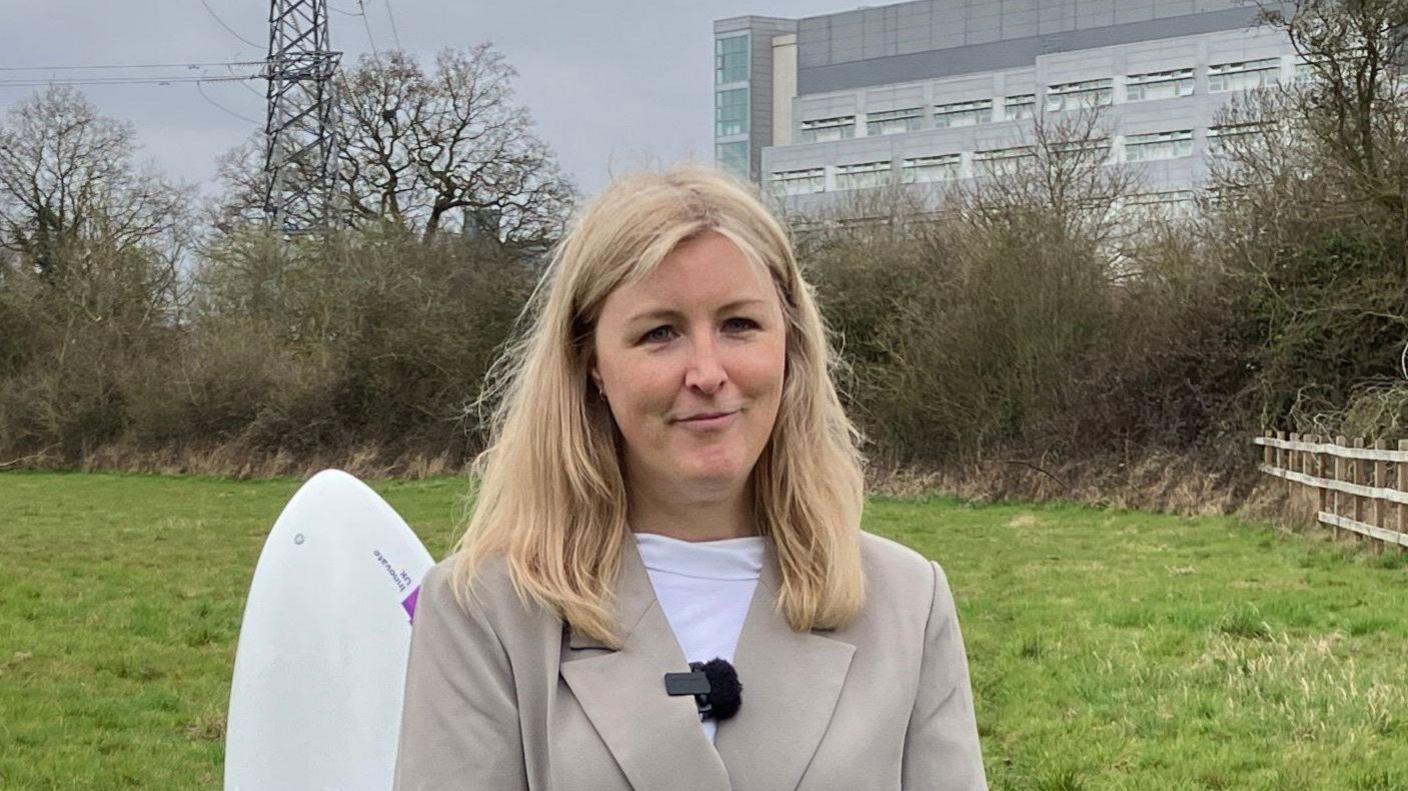Drones take defibrillators to remote patients
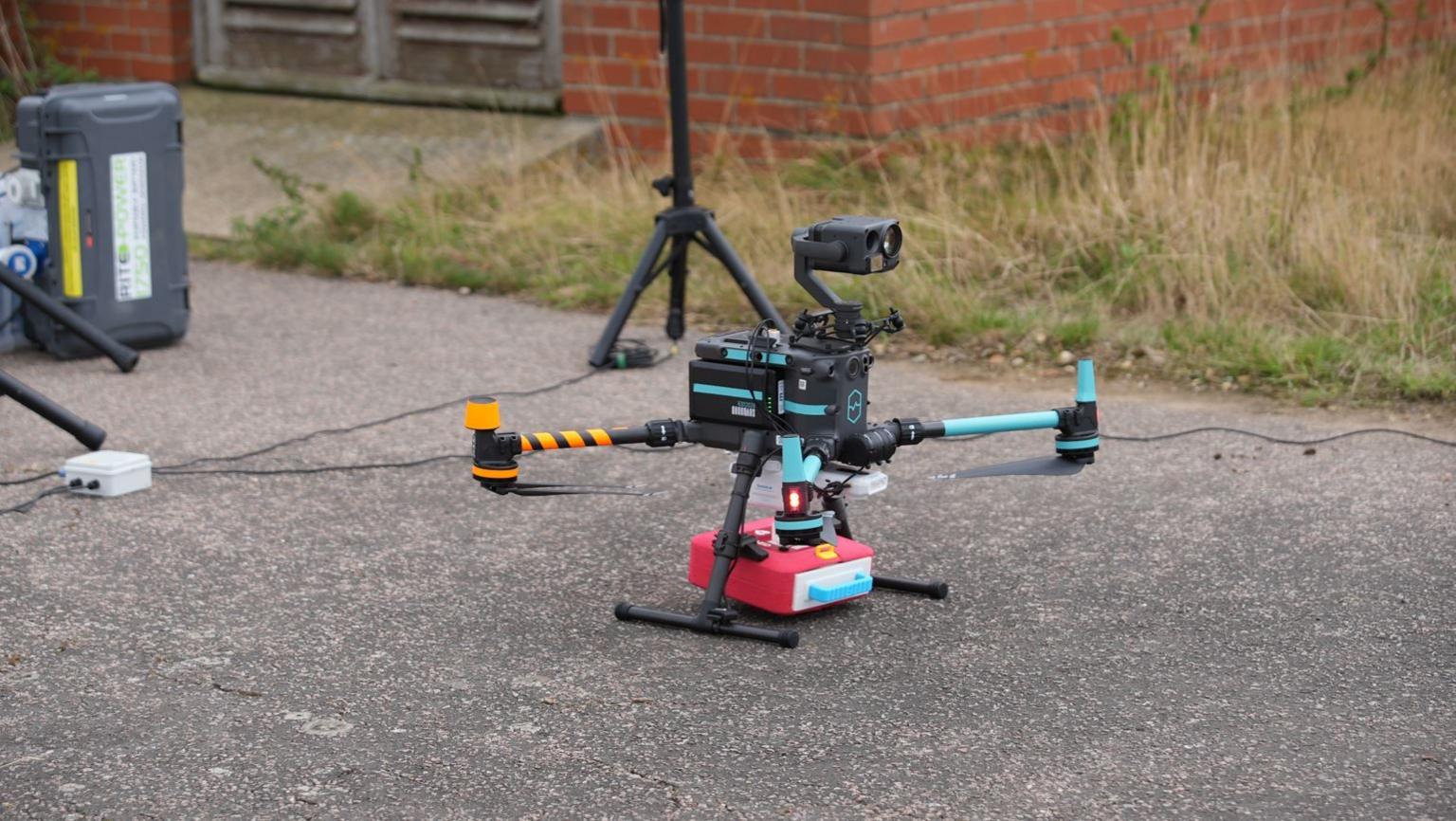
The researchers found the drones could quickly be launched with the life-saving defibrillators
- Published
Tests have been carried out to see if drones can effectively carry defibrillators to patients suffering cardiac arrests.
Researchers at the University of Warwick worked with the Welsh Ambulance Service on the trial, external, in a test scenario on the former RAF Bentwaters base in Suffolk.
They wanted to look at the benefits of getting the defibrillators to places not easily accessible by road.
The research team, which also worked with Dorset-based drone firm Skybound, said the trials were a success and they were looking for larger-scale trials.
The university said there were more than 40,000 cardiac arrests outside hospitals every year in the UK, but the survival rate was less than 10%.
Defibrillators can double the chance of survival, but can be difficult to find in an emergency or remote areas.
The researchers tested drones carrying defibrillators on mock emergency scenarios, and found they could be launched quickly and then piloted accurately to the target location.
They also timed how quickly the equipment could be put into use when it arrived and found there were some delays, but unpacking the equipment from the drone was not a problem.
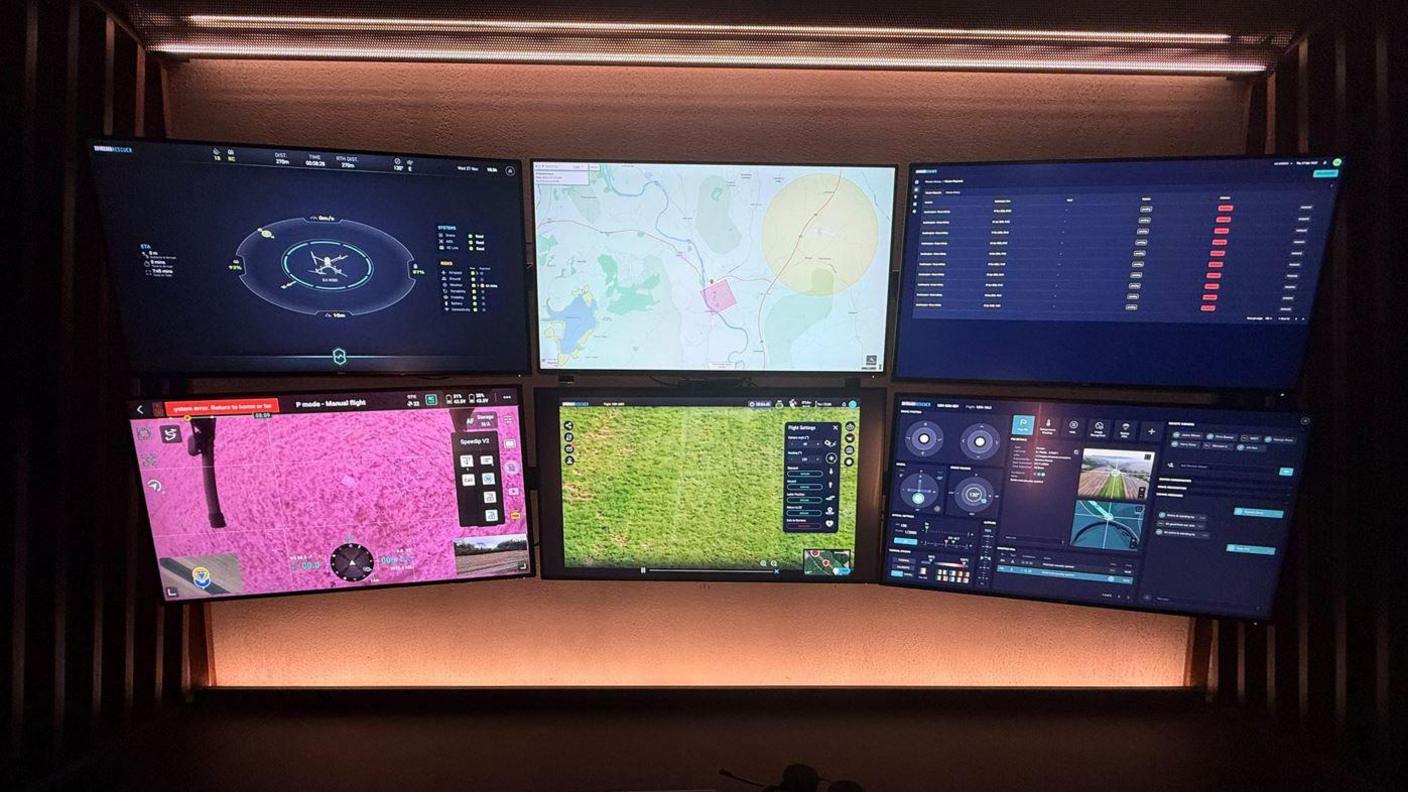
The drones trials were supported by autonomous drone specialists SkyBound
Dr Christopher Smith, from the University of Warwick, said: "We have successfully demonstrated that drones can safely fly long distances with a defibrillator attached and maintain real-time communications with emergency services during the 999 call."
He said he believed the system could be used for real emergencies across the UK soon.
Carl Powell, Clinical Lead for Acute Care at the Welsh Ambulance Service, said the technology showed "a great amount of promise".
"In a cardiac arrest, every second counts," he added.
The project has received funding from the National Institute for Health and Care Research (NIHR)
Prof Mike Lewis, its Scientific Director for Innovation, said: "Cardiac arrest, as the Secretary of State highlighted, is one of the biggest killers, claiming tens of thousands of people's lives a year.
"In an emergency situation, time is of the essence and it's crucial that bystanders can help before ambulance crews arrive."
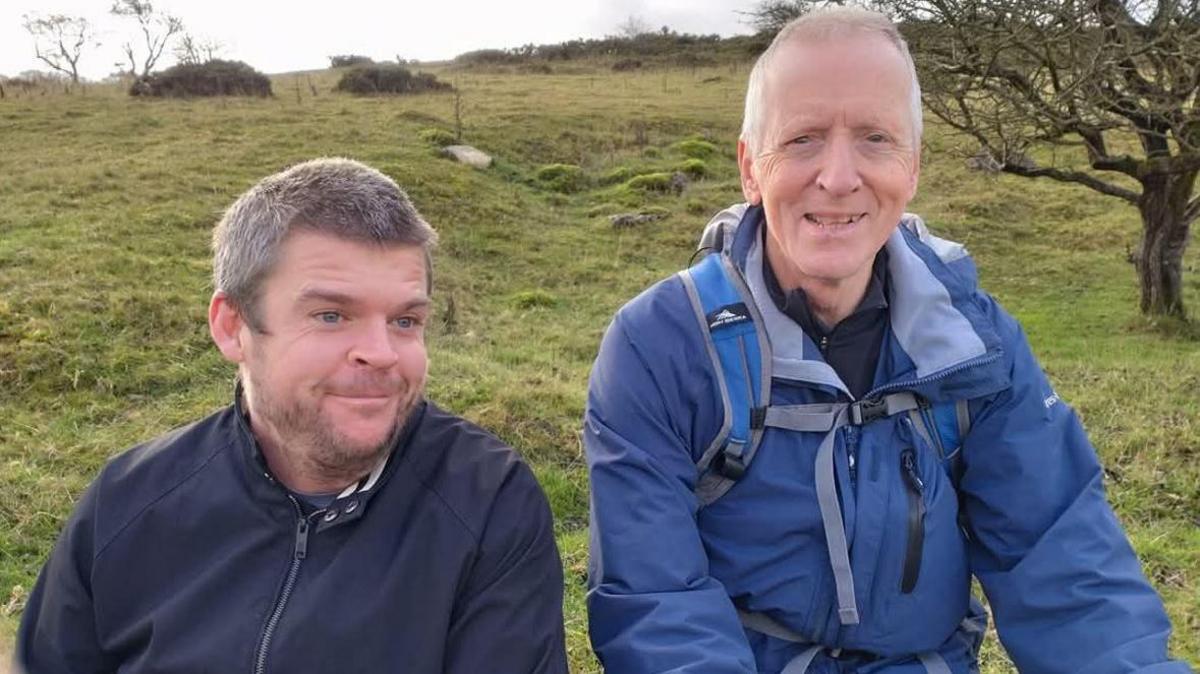
Steve Holt (right) was out in the Lake District with his son Mark when he suffered one of his cardiac arrests
Steve Holt, who survived two cardiac arrests in remote beauty spots, said he believed the drones could "help to save lives".
When the 74-year-old collapsed while out walking with his son, Mark, in the Lake District in 2019 it took an ambulance 25 minutes to reach him by road.
Luckily Mark had managed to find a defibrillator on the outside of a pub, but he said: "While I was resuscitating dad it felt like an eternity waiting for help."
Get in touch
Tell us which stories we should cover in Warwickshire
Follow BBC Coventry & Warwickshire on BBC Sounds, Facebook, external, X, external and Instagram, external.
Related topics
More stories like this
- Published21 August 2024
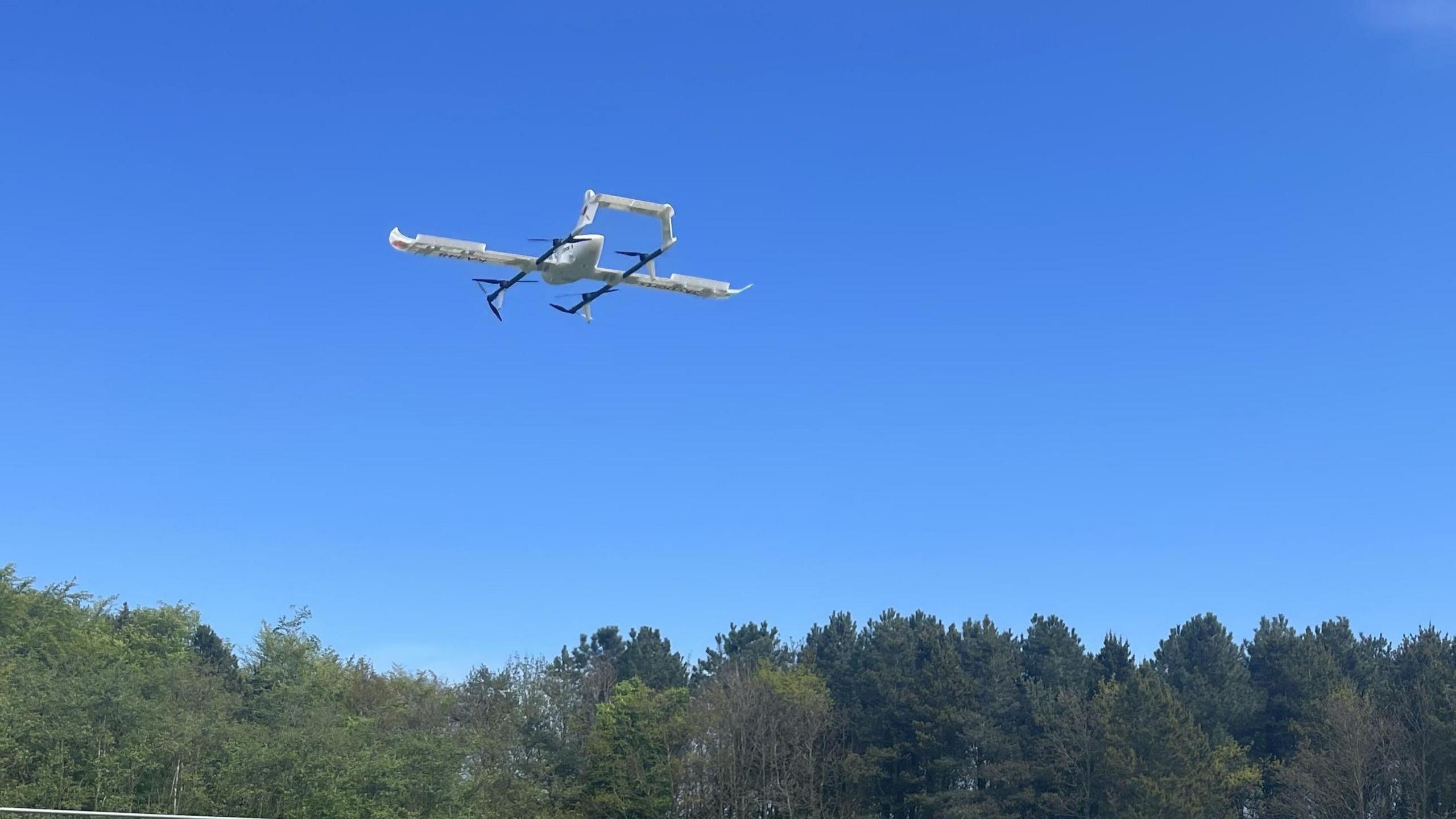
- Published17 September 2024
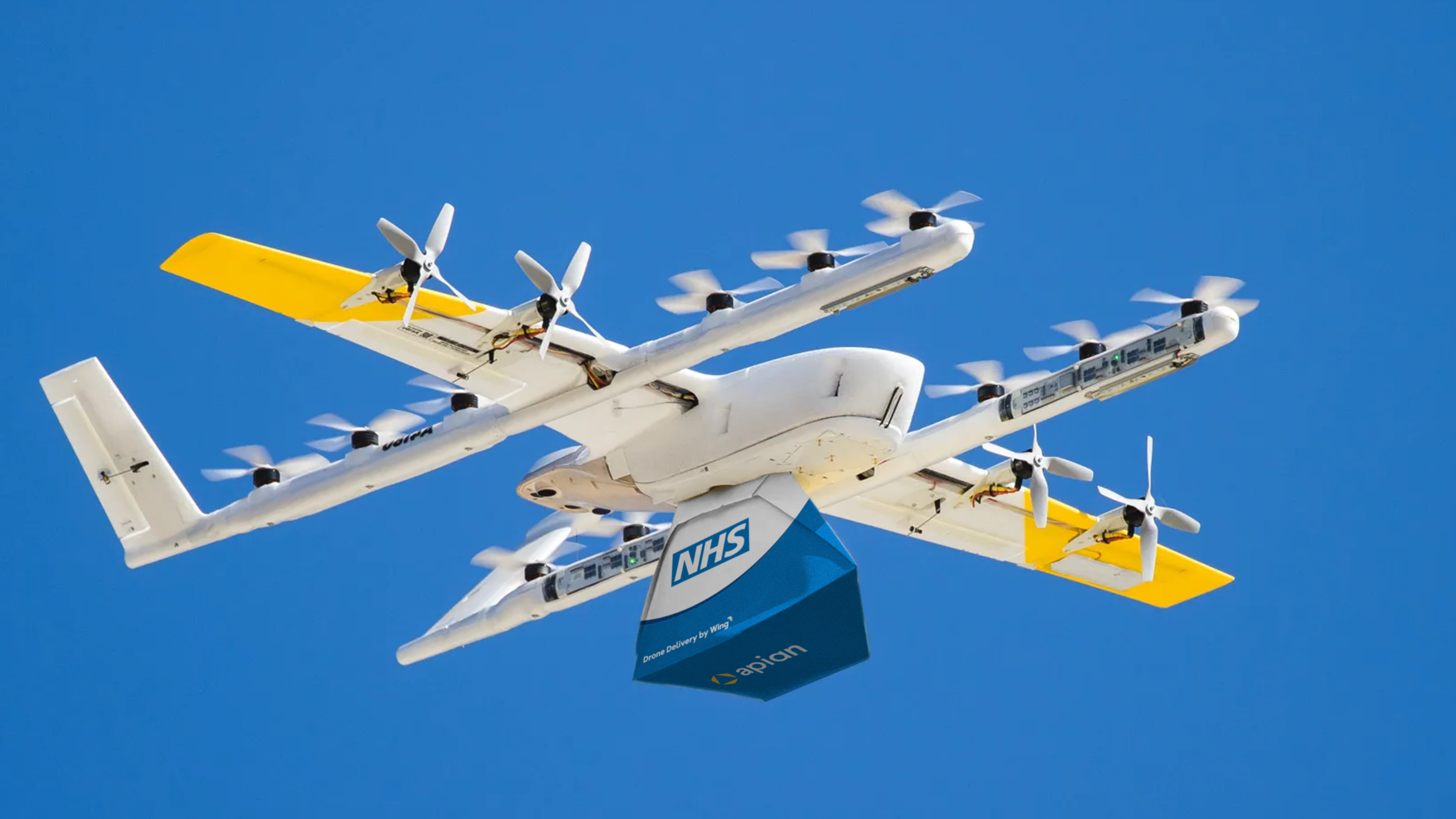
- Published21 August 2024
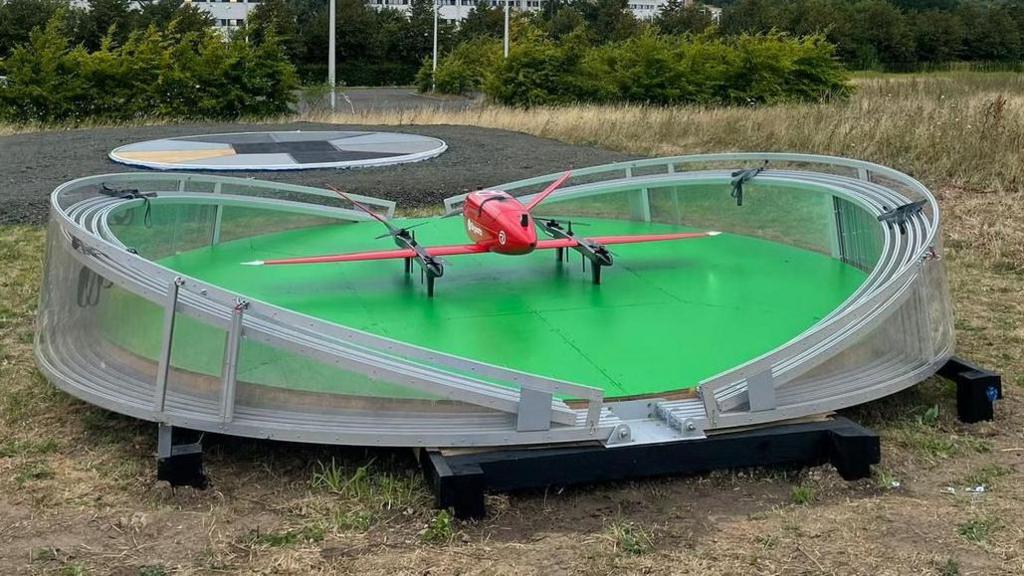
- Published27 March
